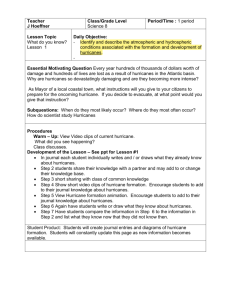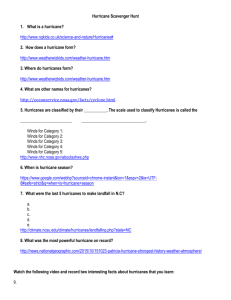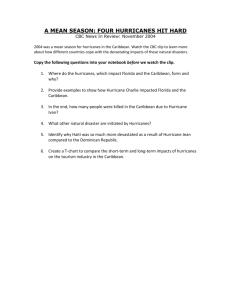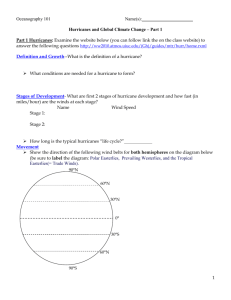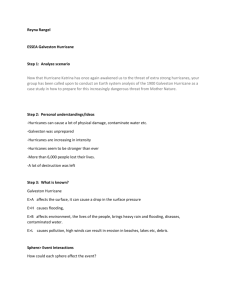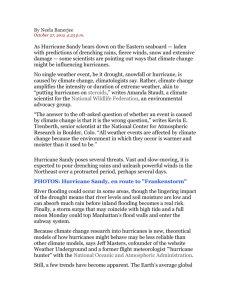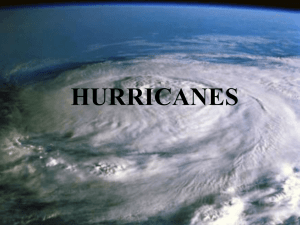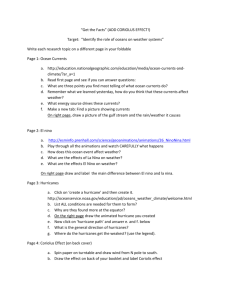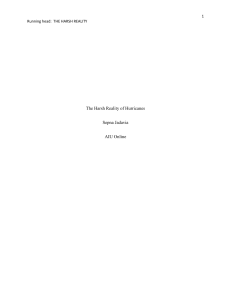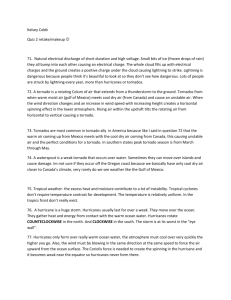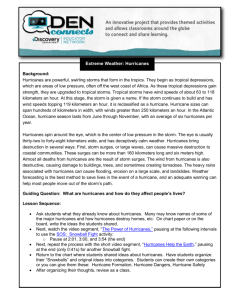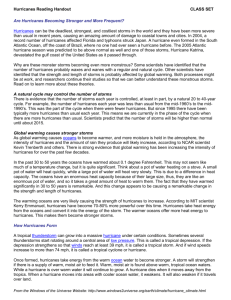Hurricanes
advertisement
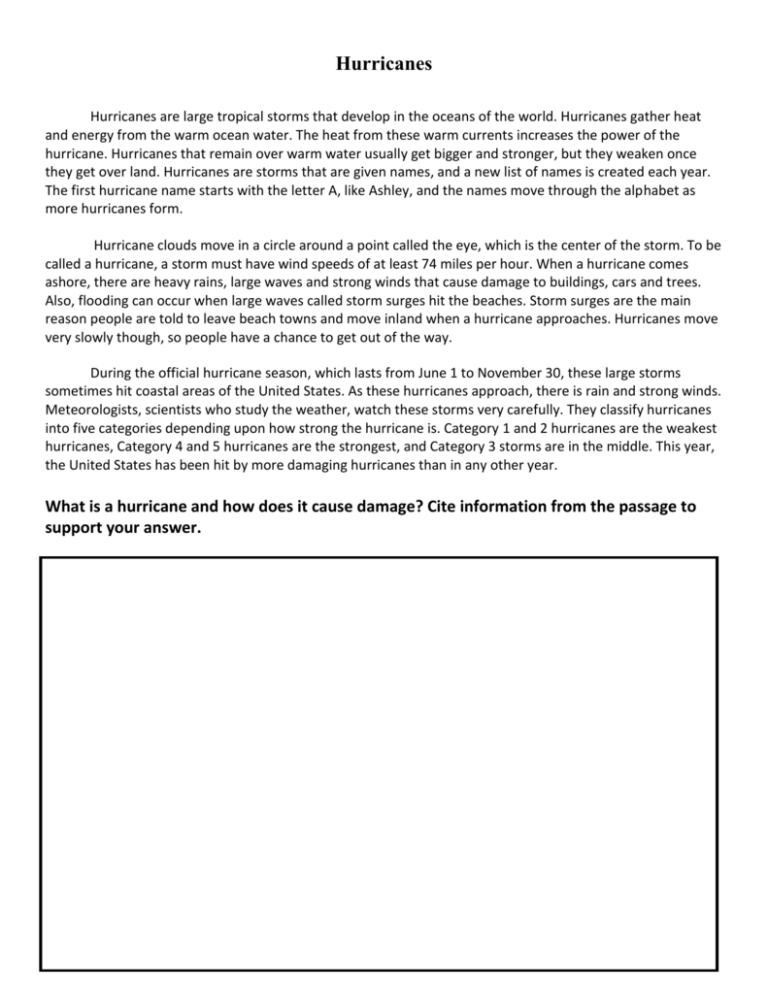
Hurricanes Hurricanes are large tropical storms that develop in the oceans of the world. Hurricanes gather heat and energy from the warm ocean water. The heat from these warm currents increases the power of the hurricane. Hurricanes that remain over warm water usually get bigger and stronger, but they weaken once they get over land. Hurricanes are storms that are given names, and a new list of names is created each year. The first hurricane name starts with the letter A, like Ashley, and the names move through the alphabet as more hurricanes form. Hurricane clouds move in a circle around a point called the eye, which is the center of the storm. To be called a hurricane, a storm must have wind speeds of at least 74 miles per hour. When a hurricane comes ashore, there are heavy rains, large waves and strong winds that cause damage to buildings, cars and trees. Also, flooding can occur when large waves called storm surges hit the beaches. Storm surges are the main reason people are told to leave beach towns and move inland when a hurricane approaches. Hurricanes move very slowly though, so people have a chance to get out of the way. During the official hurricane season, which lasts from June 1 to November 30, these large storms sometimes hit coastal areas of the United States. As these hurricanes approach, there is rain and strong winds. Meteorologists, scientists who study the weather, watch these storms very carefully. They classify hurricanes into five categories depending upon how strong the hurricane is. Category 1 and 2 hurricanes are the weakest hurricanes, Category 4 and 5 hurricanes are the strongest, and Category 3 storms are in the middle. This year, the United States has been hit by more damaging hurricanes than in any other year. What is a hurricane and how does it cause damage? Cite information from the passage to support your answer.
